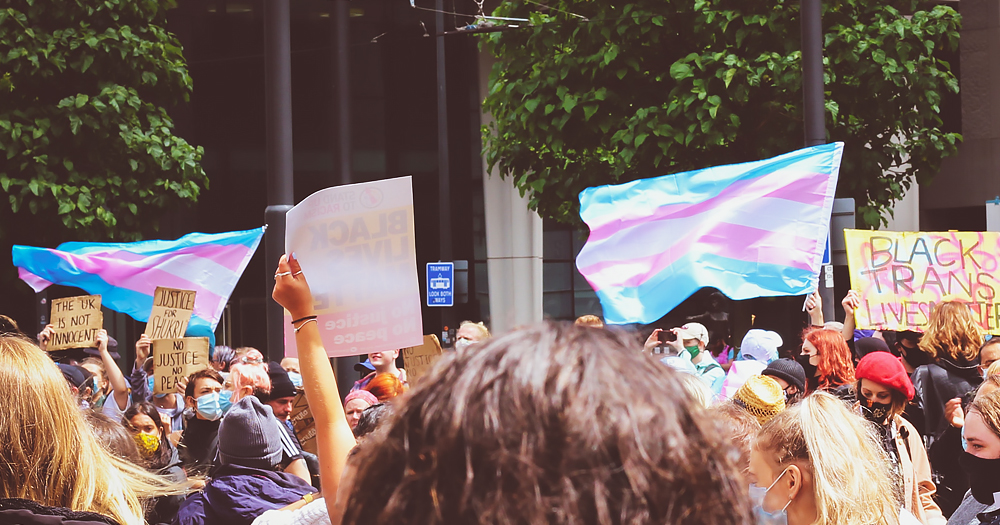In Scotland, a Gender Recognition Reform Bill was published yesterday, March 3. The new legislation is set to amend the Gender Recognition Act of 2004 and will introduce new procedures for Transgender people to obtain a birth certificate with their correct gender.
The Bill will be discussed in the Scottish Parliament over the coming year and, if it becomes legislation, it will introduce new criteria for individuals who apply for a Gender Recognition Certificate (GRC). Once a GRC is granted, a Transgender person can have their correct gender legally recognised and can obtain a new birth certificate showing that gender.
I support the reform of the Gender Recognition Act in Scotland. Good luck to all those campaigners and politicians fighting for a better future for our trans and non-binary siblings in Scotland! #ComeOutforTransEquality #TransRightsAreHumanRights #transrights #trans #nonbinary pic.twitter.com/kbq4EdUz7J
— Katie in Kernow (@katie_in_kernow) March 3, 2022
The main criteria that would be introduced is that an applicant will be required to make a legally binding declaration to express their intention to live permanently in their acquired gender. There will be no need to provide medical documentation anymore and applicants will have to live in their acquired gender for at least three months, with an additional three-month reflection period before the certificate is issued.
A false statutory declaration will result in a criminal offence punishable by up to two years in prison, according to what the Bill proposes.
The Bill has encountered strong opposition from some women’s rights groups due to the introduction of this “self-identification” process. Susan Smith, who is part of one of the most critical groups, For Women Scotland, said that, “This is opening up gender recognition certificates to a whole new cohort of people, without gatekeeping, and there is huge public opposition to self-identification and the risk of people taking advantage of that.”
The Scottish Parliament has just published the Gender Recognition Reform (Scotland) Bill: https://t.co/wuNUoBVuyq to simplify the process that lets trans men and trans women in Scotland change the sex on their birth certificate. #ReformTheGRA (1/4) pic.twitter.com/8FdNRZCH4x
— Scottish Trans (@ScottishTrans) March 3, 2022
The group Fair Play For Women also launched a legal challenge to block Transgender people from being given the option to self-identify. The judge threw out the challenge earlier this month in a landmark ruling for Transgender rights.
In responding to these critics, Social Justice Secretary Shona Robinson stated: “Trans men and women are among the most stigmatised in our society and many find the current system for obtaining a Gender Recognition Certificate to be intrusive, medicalised and bureaucratic. This Bill does not introduce any new rights for Trans people. It is about simplifying and improving the process for a Trans person to gain legal recognition, which has been a right for 18 years.”
“Our support for Trans rights does not conflict with our continued strong commitment to uphold the rights and protections that women and girls currently have under the 2010 Equality Act. This Bill makes no changes to that Act.” she also added.
Today the Gender Recognition Reform (Scotland) Bill has been published. This is the start of the process to finally bring in GRA reform in Scotland ?️⚧️
With Greens in Government, we're making it easier, quicker & less traumatic for trans people to have their gender recognised ? pic.twitter.com/Fu2nZRiChU
— Scottish Young Greens (@scotyounggreens) March 3, 2022
LGBTQ+ rights and equality organisations in Scotland received the proposal of the Gender Recognition Reform Bill with favour and agreed that the legislation could be very beneficial to the lives of Transgender folks.
Manager of the group Scottish Trans, Vic Valentine, had this to say: “We welcome the proposals in this Bill, that would see a massive improvement in how Trans men and Trans women in Scotland are able to be legally recognised as who they are. The current process is difficult, stressful and expensive, and it reinforces harmful stereotypes about Trans people: that who we are is a mental illness, and that our choices about our bodies are not our own to choose to share with others.
“While the proposals fall far short of a law that would enable all Trans people in Scotland to be legally recognised as who we are, this important step forward is one that we hope that all MSPs across the Chamber can support.”
© 2022 GCN (Gay Community News). All rights reserved.
Support GCN
GCN is a free, vital resource for Ireland’s LGBTQ+ community since 1988.
GCN is a trading name of National LGBT Federation CLG, a registered charity - Charity Number: 20034580.
GCN relies on the generous support of the community and allies to sustain the crucial work that we do. Producing GCN is costly, and, in an industry which has been hugely impacted by rising costs, we need your support to help sustain and grow this vital resource.
Supporting GCN for as little as €1.99 per month will help us continue our work as Ireland’s free, independent LGBTQ+ media.
